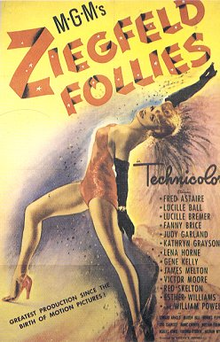
Fred Astaire was an American dancer, actor, singer, choreographer and presenter. He is widely regarded as the "greatest popular-music dancer of all time". He received numerous accolades including an Honorary Academy Award, three Primetime Emmy Awards, a BAFTA Award, two Golden Globe Awards, and a Grammy Award. He was honored with the Film Society of Lincoln Center tribute in 1973, the Kennedy Center Honors in 1978, and AFI Life Achievement Award in 1980. He was inducted into the Hollywood Walk of Fame in 1960, American Theatre Hall of Fame in 1972, and the Television Hall of Fame in 1989.

The Band Wagon is a 1953 American musical romantic comedy film directed by Vincente Minnelli, starring Fred Astaire and Cyd Charisse. It tells the story of an aging musical star who hopes a Broadway show will restart his career. However, the play's director wants to make it a pretentious retelling of the Faust legend and brings in a prima ballerina who clashes with the star. Along with Singin' in the Rain (1952), it is regarded as one of the finest Metro-Goldwyn-Mayer musicals, although it was a modest box-office success on first release.
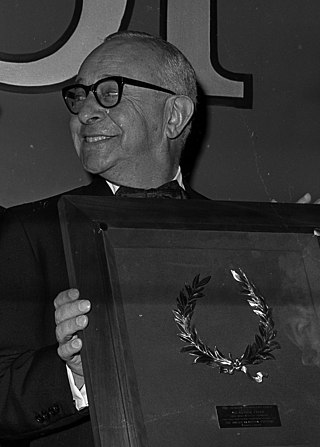
Arthur Freed was an American lyricist and Hollywood film producer. He won the Academy Award for Best Picture twice, in 1951 for An American in Paris and in 1958 for Gigi. Both films were musicals, and both were directed by Vincente Minnelli. In addition, he produced and was a co-lyricist for the film Singin' in the Rain.
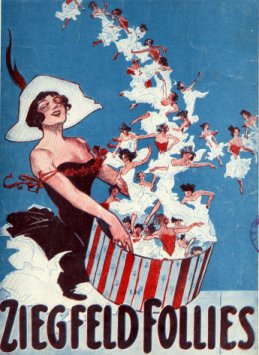
The Ziegfeld Follies were a series of elaborate theatrical revue productions on Broadway in New York City from 1907 to 1931, with renewals in 1934, 1936, 1943, and 1957. They became a radio program in 1932 and 1936 as The Ziegfeld Follies of the Air.

Cyd Charisse was an American dancer and actress.
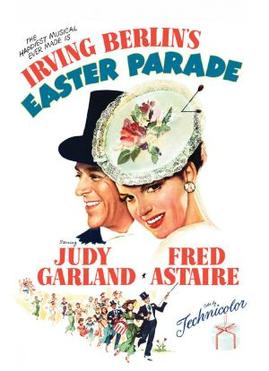
Easter Parade is a 1948 American Technicolor musical film starring Judy Garland, Fred Astaire, Peter Lawford, and Ann Miller. The film contains some of Astaire's and Garland's best-known songs, including "Easter Parade", "Steppin' Out with My Baby", and "We're a Couple of Swells", all by Irving Berlin.
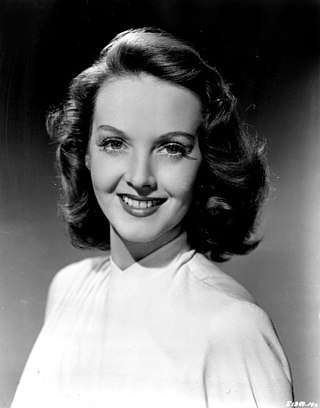
Lucille Bremer was an American film actress and dancer.
That's Entertainment! is a 1974 American compilation film released by Metro-Goldwyn-Mayer to celebrate the studio's 50th anniversary. The success of the retrospective prompted a 1976 sequel, the related 1985 film That's Dancing!, and a third installment in 1994.
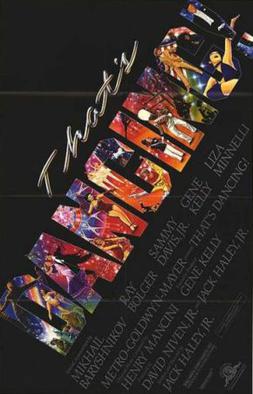
That's Dancing! is a 1985 American compilation film produced by Metro-Goldwyn-Mayer that looked back at the history of dancing in film. Unlike the That's Entertainment! series, this film not only focuses specifically on MGM films, but also included films from other studios.
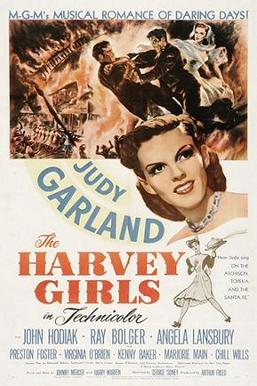
The Harvey Girls is a 1946 Technicolor American musical film produced by Arthur Freed for Metro-Goldwyn-Mayer. It is based on the 1942 novel of the same name by Samuel Hopkins Adams, about Fred Harvey's Harvey House waitresses. Directed by George Sidney, the film stars Judy Garland and features John Hodiak, Ray Bolger, and Angela Lansbury, as well as Preston Foster, Virginia O'Brien, Kenny Baker, Marjorie Main and Chill Wills. Future star Cyd Charisse appears in her first speaking role on film.
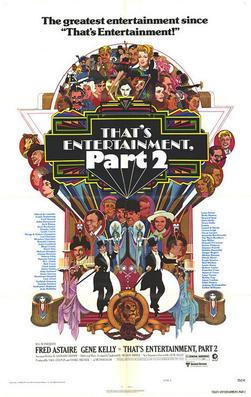
That's Entertainment, Part II is a 1976 American compilation film released by Metro-Goldwyn-Mayer and a sequel to That's Entertainment! (1974). Like the previous film, That's Entertainment, Part II was a retrospective of famous films released by MGM from the 1930s to the 1950s. Some posters for the film use Part 2 rather than Part II in the title.
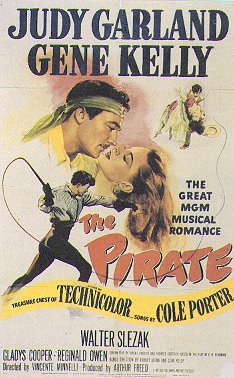
The Pirate is a 1948 American musical film produced by Metro-Goldwyn-Mayer. With songs by Cole Porter, it stars Judy Garland and Gene Kelly with costars Walter Slezak, Gladys Cooper, Reginald Owen, The Nicholas Brothers, and George Zucco.

Charles Powell Walters was an American Hollywood director and choreographer most noted for his work in MGM musicals and comedies from the 1940s to the 1960s.
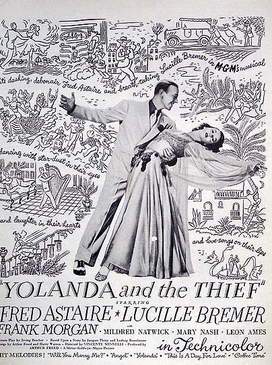
Yolanda and the Thief is a 1945 American Technicolor MGM musical-comedy film set in a fictional Latin American country. It stars Fred Astaire, Lucille Bremer, Frank Morgan, and Mildred Natwick, with music by Harry Warren and lyrics by Arthur Freed. The film was directed by Vincente Minnelli and produced by Arthur Freed.

Till The Clouds Roll By is a 1946 American Technicolor musical film produced by Metro-Goldwyn-Mayer and a fictionalized biopic of composer Jerome Kern, portrayed by Robert Walker. Kern was involved with the production, but died before its completion. It was the first in a series of MGM biopics about Broadway composers.
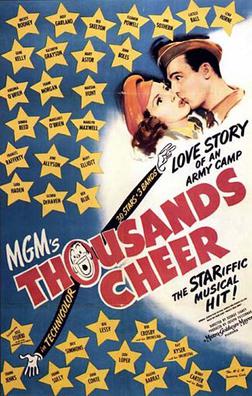
Thousands Cheer is a 1943 American musical comedy film directed by George Sidney and released by Metro-Goldwyn-Mayer. Produced during the Second World War, the film was intended as a morale booster for American troops and their families.
"This Heart of Mine" is a 1944 song written by composer Harry Warren and lyricist Arthur Freed, and featured in the musical score of the film, Ziegfeld Follies. The song is introduced by Fred Astaire, who dances with Lucille Bremer in a lavish and romantic dance sequence. In the same film, Esther Williams performs a water ballet to a softer, instrumental version of the song.
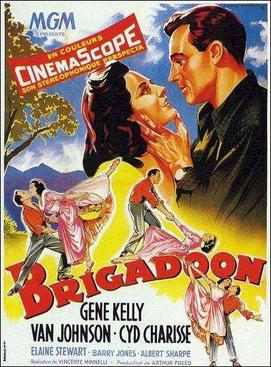
Brigadoon is a 1954 American Metro-Goldwyn-Mayer musical film made in CinemaScope and color by Ansco based on the 1947 Broadway musical of the same name by Alan Jay Lerner and Frederick Loewe. The film was directed by Vincente Minnelli and stars Gene Kelly, Van Johnson, and Cyd Charisse. Brigadoon has been broadcast on American television and is available in VHS, DVD and Blu-ray formats.
Sydney Guilaroff was a hair stylist during Hollywood's Golden Age, and the first to receive on-screen credit in films. He worked for more than 40 years at Metro Goldwyn Mayer studios, on more than 1,000 films. He was instrumental in creating many of the hairstyles that became signature looks for film stars.

"Limehouse Blues" is a popular British song written by the London-based duo of Douglas Furber (lyrics) and Philip Braham (music).
